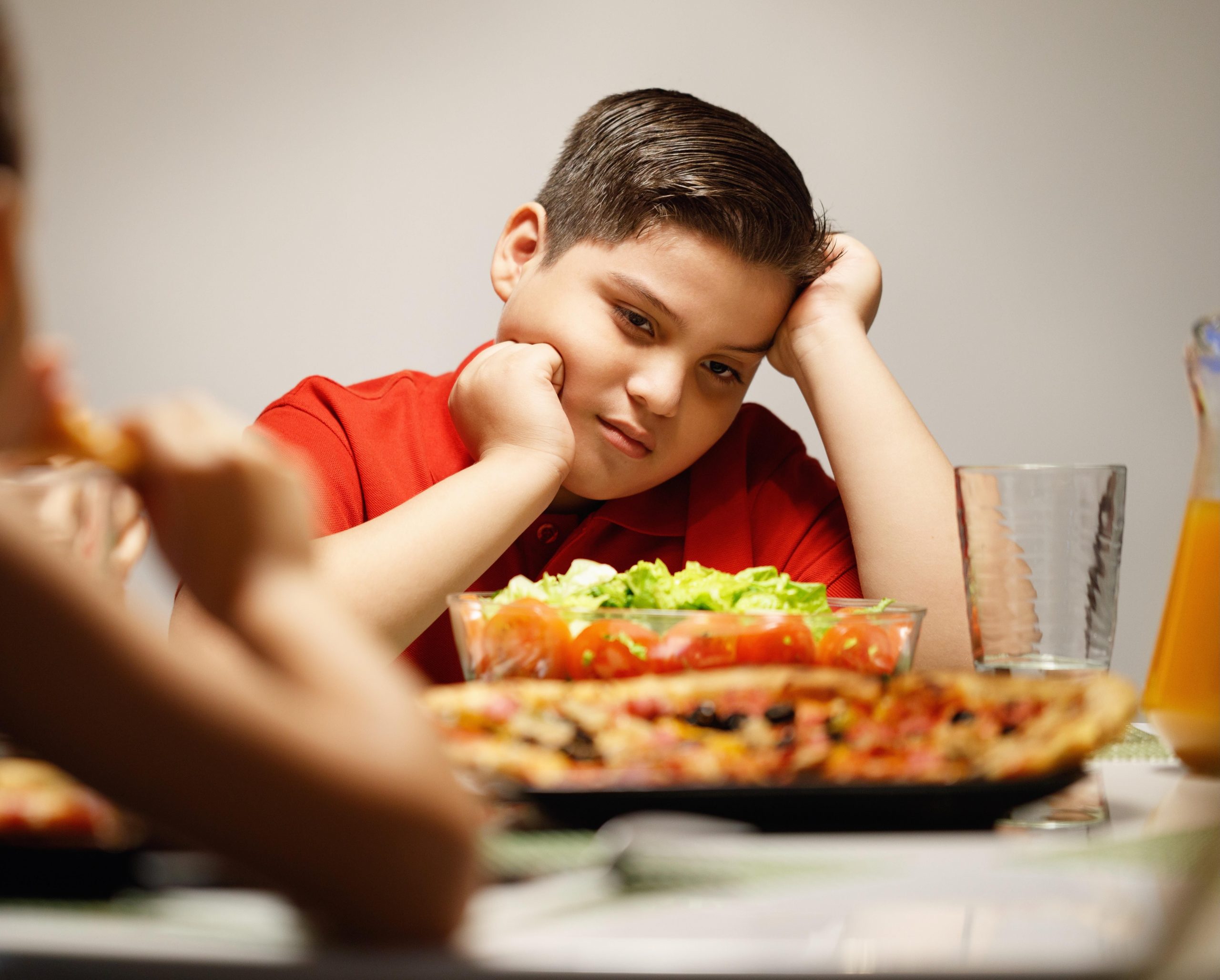
With U.S. health officials calling childhood obesity a public health crisis, conversations about weight are important. But what you say to your kids can be challenging, and even counterproductive, a new study found.
“Body weight is a sensitive issue and the way we talk about it matters,” said lead author Rebecca Puhl, deputy director of the University of Connecticut Rudd Center for Food Policy and Health.
“We really want to identify language that adolescents feel more comfortable using in these conversations, that they don’t feel stigmatized, that they don’t feel blamed or shamed,” Puhl noted.
To do that, researchers reviewed 2021survey data from more than 2,000 kids ages 10 to 17, along with more than 1,900 parents. Participants were asked about 27 terms and phrases that can be used to describe body weight.
The teens felt the most negative emotions about terms like “overweight,” “fat” and “extremely obese,” the study found. More than one-third of youths reported feeling embarrassment, shame and sadness when their parents used these words.
Have a daughter? Tread lightly, the researchers recommended. Girls reported feeling more negative emotions in response to words used about weight than boys did.
Whether the young person had obesity or not did not impact how they felt about the words.
“I think a lot of parents have positive intentions when it comes to talking about their child’s weight. They want their child to be healthy. They want their adolescent to feel good about their body size, but sometimes the way that they communicate can come across as being critical or judgmental or using words that really make them feel bad about themselves,” Puhl said.
The most preferred terms were “healthy weight” and “normal weight,” the study found. Some of the preferred terminology depended on race and identity. Black and Hispanic kids favored words like “thick” and “curvy.”
“A lot of adolescents face weight stigma,” Puhl said. “They face teasing, stereotypes, victimization because of their body weight or size. And, in fact, some of that weight stigma happens in the home from parents.”
This can lead to emotional distress, increased depressive symptoms and lower body esteem. It can even encourage unhealthy eating behaviors and reduced physical activity because those are the settings where someone might feel stigmatized, Puhl said.
“We know broadly from the stigma literature that when a person is stigmatized about their weight that this really can be very damaging to health,” she said.
At least half of the kids surveyed don’t want their parents talking about weight. They’re more willing to talk when they bring it up first or if their parents ask their permission to discuss it, Puhl said.
About 20% of U.S. children and teens are obese, according to the U.S. Centers for Disease Control and Prevention. This puts them at risk of serious health problems like diabetes and high blood pressure.
Puhl recommends parents shift the conversation to health rather than to body weight.
Even better than talking is modeling healthy behaviors and providing opportunities to eat healthy food at home. Go for walks and make dinner together as a family, she said.
“There can be so many ways to really engage in health behaviors that really improve weight-related health without talking about weight,” Puhl said.
The study findings were published in the December issue of Pediatrics.
Dr. Stephen Pont, founding chair of the American Academy of Pediatrics Section on Obesity, said he encourages families to do three things to be successful when making healthy changes.
First, make small changes that will stick, which might include letting the child pick the change.
Then, make changes as a family, which are more likely to be maintained. Healthy nutrition and physical activity are good for everyone in the family, said Pont, who was not involved in this study.
Lastly, it’s important to keep it positive.
“Guilt and blame don’t tend to motivate long-term healthy changes, instead they just make people feel bad. And when people feel bad they are often more likely to be less active and to eat less healthy food,” said Pont, who is medical director at the Texas Department of State Health Services Center for Public Health Policy and Practice.
Eileen Chaves, a pediatric psychologist at Nationwide Children’s Hospital in Columbus, Ohio, said she thinks that using the words that patients use to define themselves helps them feel empowered, invested in their treatment and understood.
“When kids start to recognize that people are actually hearing them and listening to them, I think, one, it makes them so much more receptive to what you’re saying,” said Chaves, co-author of an editorial published with the study.
Chaves said this study is a great first step and she would like to see it replicated with youths who are gender diverse and transgender.
“We know transgender and gender diverse youth experience a lot of weight bias, a lot of stigma. There’s a high prevalence of eating disorders in gender diverse and transgender youth,” Chaves noted.
More information
The U.S. Centers for Disease Control and Prevention has more on childhood obesity.
SOURCES: Rebecca Puhl, PhD, deputy director, University of Connecticut Rudd Center for Food Policy and Health, Hartford; Eileen Chaves, MSc, PhD, pediatric psychologist, Nationwide Children’s Hospital, Columbus, Ohio; Stephen Pont, MD, MPH, founding chair, American Academy of Pediatrics Section on Obesity and medical director, Center for Public Health Policy and Practice, Texas Department of State Health Services, Austin; Pediatrics, December 2022
Source: HealthDay
Copyright © 2024 HealthDay. All rights reserved.

Leave a Reply